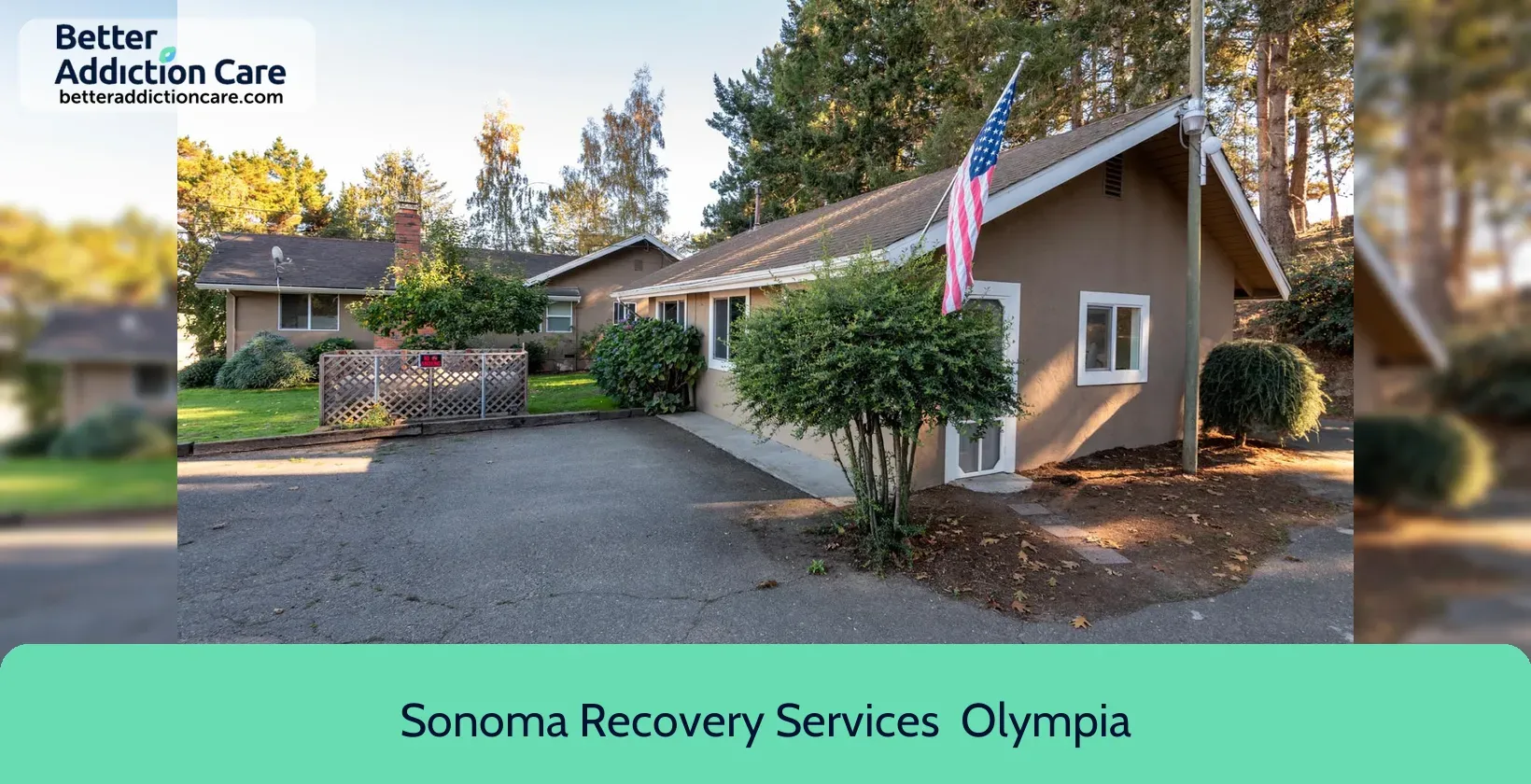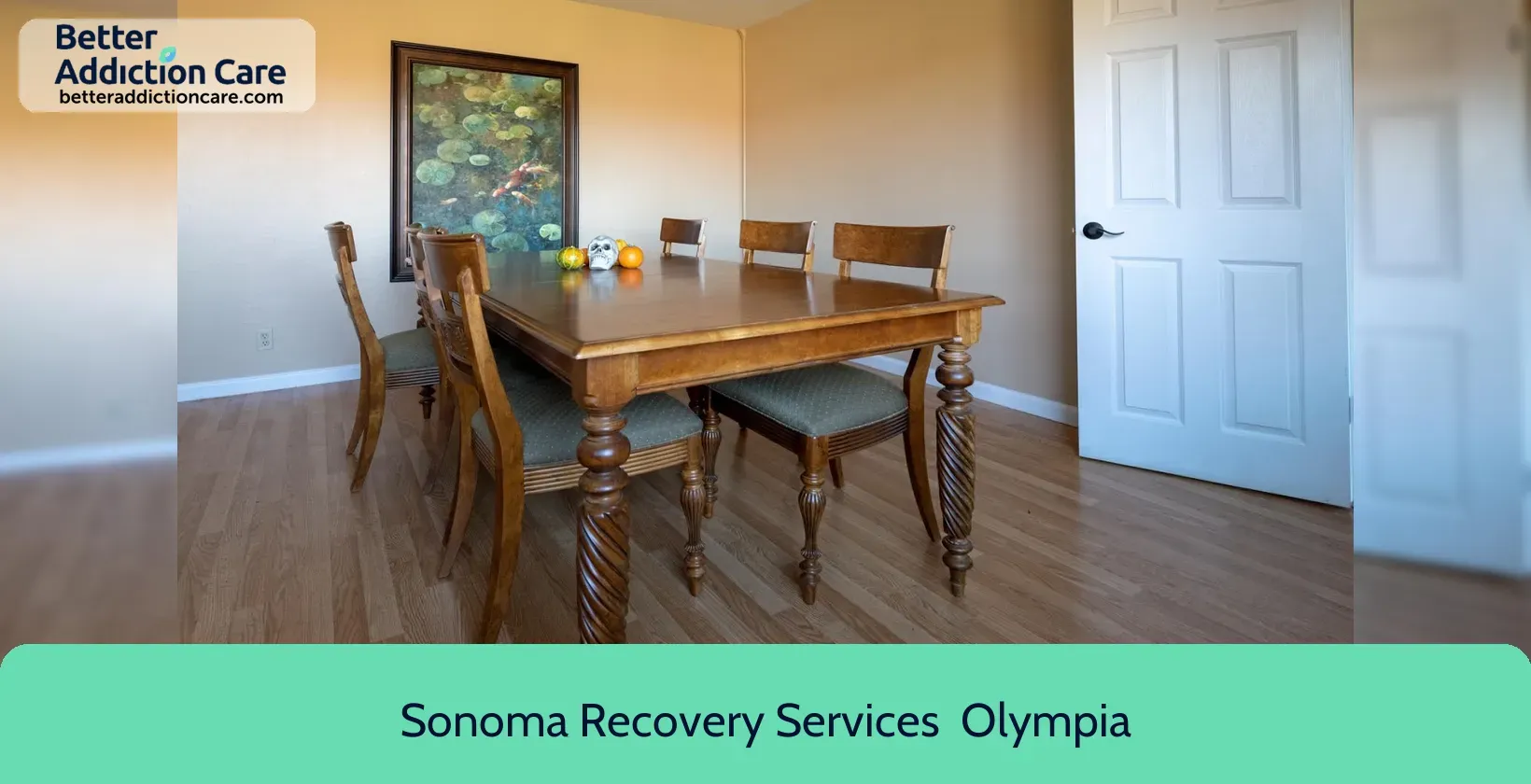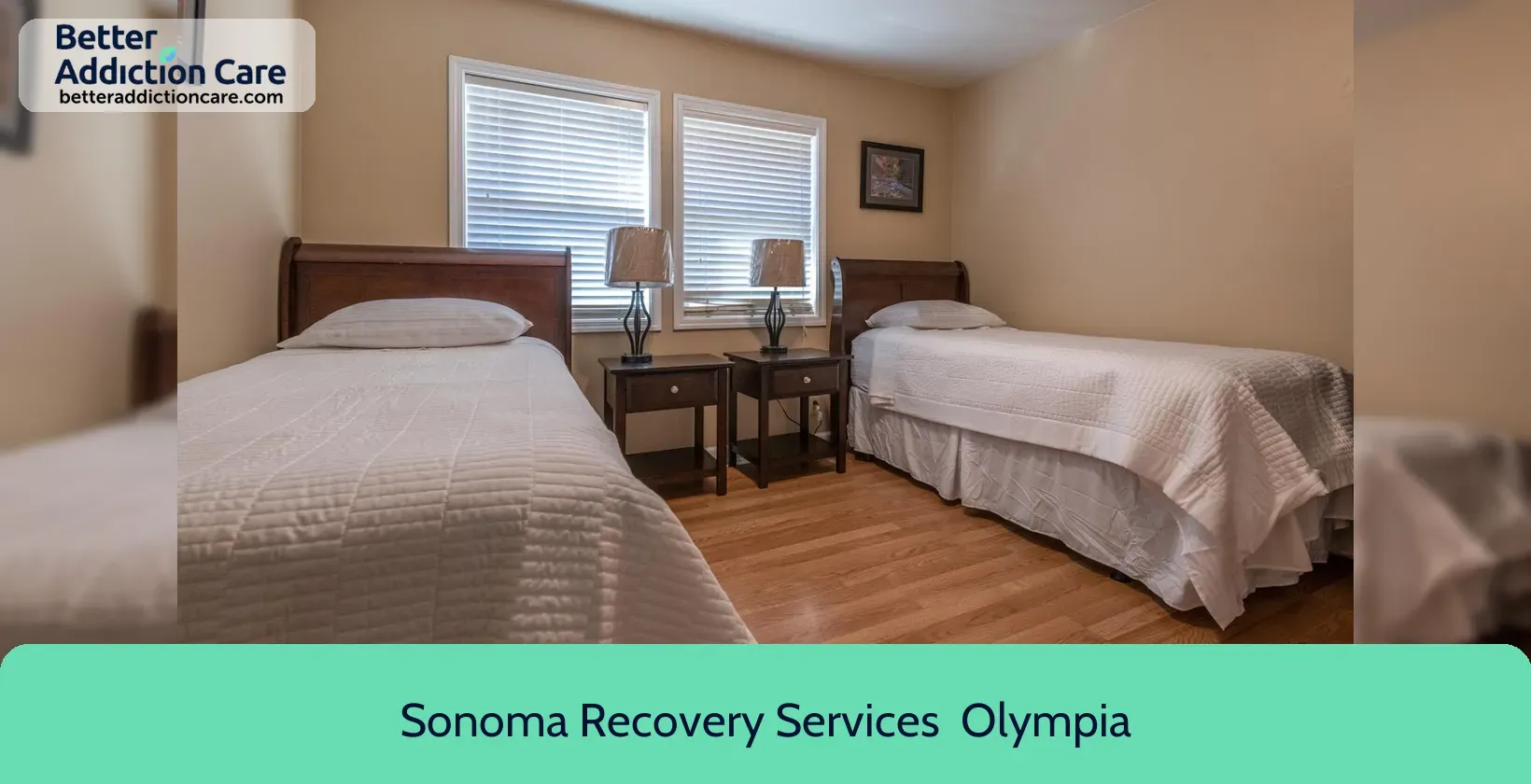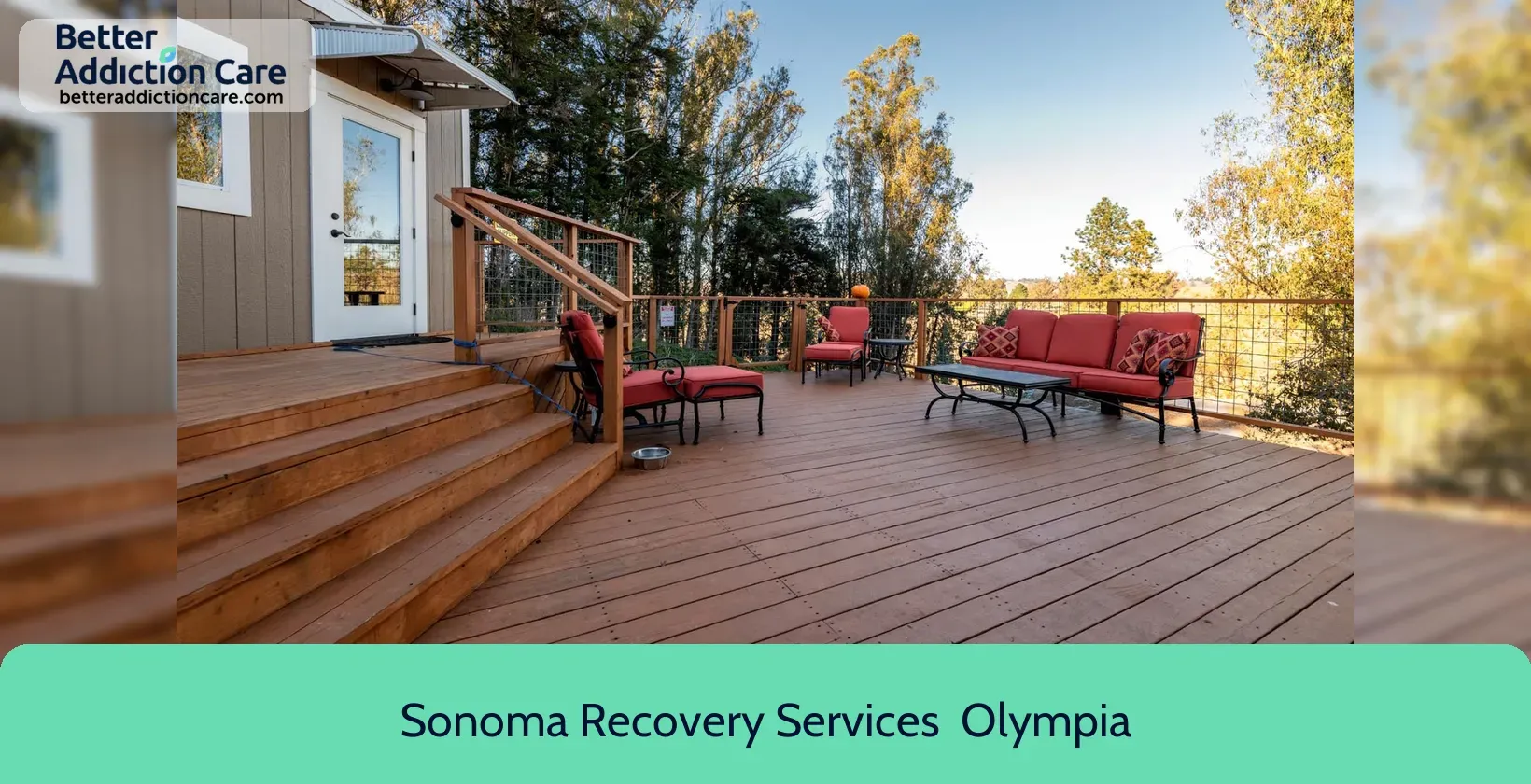Sonoma Recovery Services - Olympia House
Overview
Olympia House, located in Petaluma, California, offers comprehensive residential and outpatient rehabilitation services for individuals struggling with alcohol and substance addictions. The facility provides a serene, rural environment that promotes healing and recovery, combining detoxification, medication-assisted treatment, and counseling tailored to the specific needs of each client.
The detox process at Olympia House is medically supervised, ensuring clients receive medications like buprenorphine and methadone to alleviate withdrawal symptoms safely. During detox, clients are monitored closely to prevent any risks, such as overdose, while also receiving counseling to initiate their recovery journey. By managing cravings and discomfort, the detox process aims to be as smooth and supportive as possible.
Once detox is complete, clients transition into a deeper phase of recovery that involves intensive counseling and self-reflection. The goal is to help individuals not only break their habits but also to explore the underlying motivations behind their substance use. This therapeutic approach allows clients to form healthier coping mechanisms for dealing with triggers. The residential program at Olympia House offers a variety of therapeutic activities, including yoga, gardening, and caring for farm animals. Clients also have the option to participate in 12-Step groups or seek relationship counseling, such as marital support. With just 32 beds, the facility fosters a tight-knit community where clients support each other in their recovery process.
For those who need more flexibility, Olympia House provides an outpatient program that meets three times per week, from 9 am to noon. This program allows clients to continue their recovery journey while remaining connected to their family and community. The focus is on developing life skills that support a healthy daily routine and reduce the reliance on substances.
Situated on 140 acres of scenic agricultural land in West Sonoma County, Olympia House offers a peaceful setting with walking trails and natural wildlife, providing residents ample opportunity to reflect and reconnect with nature. The facility emphasizes a holistic approach to recovery, incorporating wholesome meals—including vegan options—and a variety of private amenities to create a comfortable, peaceful, and nourishing environment. Recreational activities, exercise options, meditation, and individual, family, and group therapies are all integral to the center’s recovery philosophy, which encourages clients to rediscover their self-esteem and purpose.
Sonoma Recovery Services - Olympia House at a Glance
Payment Options
- Cash or self-payment
- Private health insurance
- IHS/Tribal/Urban (ITU) funds
- Sliding scale payment assistance
- Medicare
Assessments
- Screening for tobacco use
- Comprehensive substance use assessment
- Screening for mental disorders
- Screening for substance use
- Comprehensive mental health assessment
Age Groups
- Young adults
- Adults
- Adolescents
Ancillary Services
- Case management service
- Mental health services
- Social skills development
- Transportation assistance
Highlights About Sonoma Recovery Services - Olympia House
7.71/10
With an overall rating of 7.71/10, this facility has following balanced range of services. Alcohol Rehabilitation: 8.00/10, Drug Rehab and Detox: 8.15/10, Insurance and Payments: 6.40/10, Treatment Options: 8.30/10.-
Treatment Options 8.30
-
Drug Rehab and Detox 8.15
-
Alcohol Rehabilitation 8.00
-
Insurance and Payments 6.40
Accreditations
Commission on Accreditation of Rehabilitation Facilities (CARF):

CARF accreditation is a prestigious recognition for organizations in rehabilitation and human services. It signifies that an organization meets rigorous quality standards and is committed to providing top-notch care. Achieving CARF accreditation involves a thorough evaluation process, including on-site surveys, to ensure excellence in programs and services. This accreditation boosts an organization's credibility, assures clients and funders of quality, and promotes ongoing improvement in the field of rehabilitation and human services.
Treatment At Sonoma Recovery Services - Olympia House
Treatment Conditions
- Alcoholism
- Mental health treatment
- Substance use treatment
- Co-occurring Disorders
- Opioid Treatement
Care Levels
- Hospital inpatient treatment
- Outpatient
- Short-term residential
- Long-term residential
- Residential detoxification
Treatment Modalities
- Cognitive behavioral therapy
- Telemedicine/telehealth therapy
- Substance use disorder counseling
- Trauma-related counseling
- Smoking/vaping/tobacco cessation counseling
Ancillary Services
Additional Services
- Pharmacotherapies administered during treatment
- Mentoring/peer support
- Breathalyzer or blood alcohol testing
Special Programs
- Clients who have experienced trauma
Common Questions About Sonoma Recovery Services - Olympia House
Contact Information
Read our Most Recent Article About Drug Addiction
DISCLAIMER: The facility name, logo and brand are the property and registered trademarks of Sonoma Recovery Services - Olympia House, and are being used for identification and informational purposes only. Use of these names, logos and brands shall not imply endorsement. BetterAddictionCare.com is not affiliated with or sponsored by Sonoma Recovery Services - Olympia House.












